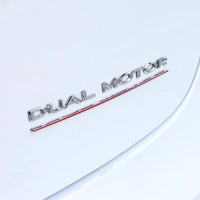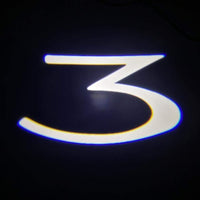Tesla has faced criticism for a number of technical problems with the motor unit, power steering, and suspension. The last one is bad news for the business because an electric car's drive units house its most essential components. The business is moving in a good direction overall, but the drivers must be aware of any technical issues.
As a result of defective bearings, seal leaks, and vibrations, your Tesla drive unit gives you problems. These difficulties may result in issues like noise. If the problems are not resolved, they may sooner or later result in the unit failing completely.
Most Reported Problems in Tesla Drive Units
- Sounds: Numerous Tesla Model S owners have mentioned the famed grinding and milling noises. If the car is being driven at low speeds, these noises become more audible. A 'clucking' sound from the back has also been noticed by some users.
- Poor Sealing: If water gets inside the drive unit, it can harm its delicate components. Bad sealings are frequently to blame, however, it only pertains to earlier Tesla models. Similar to noises, the Model S is the primary culprit in this problem.
- Vibrations: As the car moves, some loose wires may cause the drive unit to vibrate. The automobile body eventually receives the vibrations.

Most Reported Problems in Tesla Drive Units (Source)
Tesla Drive Unit Failure Symptoms
The most noticeable symptom prior to drive unit failure, according to Tesla owners speaking on various sites, is noise. These are the same as those that were previously addressed; nevertheless, it may take some time and distance before noises finally result in a full breakage.
Without any warning signs, such as noises, the car may become unresponsive in the event that water enters the drive box after any crucial component is destroyed.
Fixes for Tesla Drive Unit Issues
Noises
To resolve this problem, speak with a specialist. It's too difficult for laypeople to repair. Tesla typically replaces the metal bearings to address this problem.
Be aware, nevertheless, that complaints of noises continuing even after numerous replacements of the entire drive unit or some crucial parts are available.
Faulty seals
Unfortunately, the drive unit will need to be replaced if there is water intrusion. By taking care of the sealants and keeping flooded paths at a safe distance, you may, however, prevent any such occurrence from occurring in the first place.
Vibrations
The correct cable harnessing is the answer. Elon Musk asserts that shimming the drive unit is preferable to replacing it. If we choose the first option, the issue will only be momentarily resolved and returned as soon as the cables come into touch with the device once more.
To remedy it, speak with a mechanic to identify the offending wire and get it harnessed.
Failure Rate of Tesla Drive Units
Drive unit problems are quite likely to occur with the Tesla Model S. A survey of 242 Tesla owners revealed that the majority had changed their drive unit. 80% of people had it replaced just once, whereas 14% had it changed twice.
According to additional research, the failure rate is actually 100%. The information shown relates to the vehicles that have logged the greatest miles and all of whose drive units have been changed.
Tesla Recalls 362,758 Vehicles, Says Full Self-Driving Beta Software May Cause Crashes
Due to issues with its Full Self-Driving Beta software, Tesla, a renowned maker of electric vehicles, has just issued a recall affecting 362,758 vehicles. Reports of possible collisions and safety risks linked to the software's autonomous driving features led to the recall. Tesla is dedicated to making sure that its customers are safe, and it has already taken proactive steps to quickly allay any worries.

Tesla Recalls 362,758 Cars Due to Full Self-Driving Crash Risk (Source)
Recall Specifics: A sizable proportion of Tesla vehicles with the Full Self-Driving Beta software installed are subject to the recall. With the help of this software, Tesla cars will be able to drive themselves in some circumstances and perform certain autonomous driving functions. However, it seems that some uses of the program have produced unanticipated behaviors, which could cause mishaps and create hazardous driving conditions.
Reasons for the Recall: After several reports of collisions and near misses, the Full Self-Driving Beta software was blamed for the recall. These occurrences were caused by various flaws and restrictions in the software's algorithms, which Tesla's own investigations and analyses found. These difficulties show how difficult it is to develop fully autonomous driving skills.
Safety Concerns: The reported accidents employing the Full Self-Driving Beta software emphasize how crucial it is for drivers to remain attentive and involved when using the capability. Tesla has emphasized that the software is only meant to support human drivers rather than to take their place of them. The company urges drivers to remain fully engaged and vigilant at all times, ready to take control of the vehicle if necessary.
Response from Tesla: Tesla has taken the initiative to address the issues raised by the Full Self-Driving Beta software. The business has started a thorough recall and is diligently pursuing software updates to address the problems. Notifications will be sent to impacted Tesla owners urging them to take their cars to authorized service facilities to have the required updates installed.
Future Safety Improvements: Tesla has been gathering data and comments from its cars fitted with the Full Self-Driving Beta software as part of its commitment to ongoing improvement. This knowledge is essential for improving the functionality and security of autonomous driving systems. The business plans to use the knowledge obtained from this recall experience to grow and improve its software, putting safety first and reducing the risk of injury.
Tesla Drive Unit Faces Issues with FSD Software: Concerns over Steady Yellow Traffic Signals and Mapping Software
The Tesla Drive Unit has recently faced issues related to its Full Self-Driving (FSD) software, prompting concerns and investigations. Reports have indicated instances where the software misinterpreted a steady yellow traffic signal, making incorrect decisions that could put drivers at risk. Despite its high driver safety score, the software update intended to address the problem did not fully rectify the issue, leading to calls for further improvements.
The Federal Traffic Safety Agency has been closely monitoring the situation and investigating potential safety implications. Crash test dummies and simulations have been utilized to analyze the impact of the FSD software's behavior during scenarios where a complete stop at a yellow signal is necessary. The agency has urged Tesla to ensure the mapping software is consistently available and accurate to prevent such incidents.

(Source)
One specific concern arose when the FSD software mistakenly directed vehicles into a turn-only lane, disregarding road markings and causing confusion for both the driver and surrounding traffic. Tesla acknowledges the challenges and complexities of refining the FSD beta software and remains committed to continual improvement and addressing these issues promptly to ensure the safety of its customers and others on the road. The maximum speed at which cars can safely travel on a particular route is governed by posted speed limits, which are a crucial component of road safety.
Concerns about the interpretation of traffic signals by FSD Software are putting Tesla Drive Unit under scrutiny; flat-wrong claims have the Highway Traffic Safety Administration looking into the matter. :
:  :
: 






















